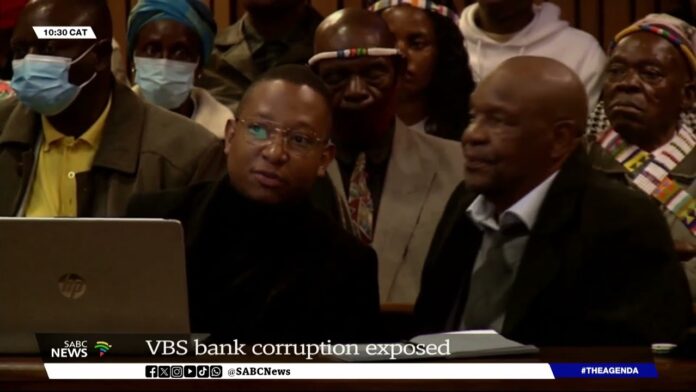Former treasury Director-General Dondo Mogajane responds to claims of accepting a R1 million bribe related to the VBS Bank scandal
Dondo Mogajane, the former Director-General of National Treasury, has firmly rejected allegations that he accepted a R1 million bribe linked to the VBS Bank scandal. The accusations surfaced in a leaked affidavit from former VBS Bank chairperson Tshifhiwa Matodzi, who alleged that Mogajane was bribed to retract a letter that instructed municipalities to halt their deposits into the bank.
Mogajane responded vehemently, stating, “I categorically deny that I have ever received corrupt monies or bribes. I served the public with distinction for 23 years, five of which were as Director-General. My record speaks for itself.”
He emphasized his commitment to integrity and vowed not to allow anyone to tarnish his reputation. Mogajane recounted that during his tenure, he actively intervened to prevent further wrongdoing by VBS, insisting that he refused Matodzi’s repeated requests to withdraw a critical circular issued by National Treasury in August 2017. This circular explicitly warned municipalities against depositing funds into mutual banks like VBS, citing violations of municipal finance regulations.
In his statement, Mogajane revealed that he had numerous meetings with Matodzi, during which he consistently maintained the Treasury’s stance against VBS. “I met with Matodzi several times and made it clear that VBS was not authorized to conduct investment deals or receive municipal deposits,” he asserted. He pointed out that Matodzi’s affidavit conveniently omitted details about the multiple meetings that included representatives from VBS, the Public Investment Corporation (PIC), the South African Reserve Bank (SARB), and other Treasury officials.
Mogajane provided evidence of his principled approach, stating, “In November 2017, I filed an affidavit opposing VBS’s actions and later supported the Hawks’ investigation.” He reiterated that municipalities cannot legally deposit funds with institutions not regulated under the Banks Act, categorically labelling VBS’s operations as illegal.
Reflecting on his engagements with VBS, Mogajane admitted he was initially unaware of the bank’s fraudulent activities. “I viewed these meetings as discussions with a black-owned bank,” he explained. However, he consistently advocated for compliance with the law, urging VBS to cease accepting deposits until it was properly established under the Banks Act.
Mogajane concluded his defence by asserting that all relevant records, including affidavits and minutes of meetings, are available with the appropriate authorities. He remains proud of his role in thwarting VBS’s corrupt practices and maintains that the moral principles guiding him during his public service continue to influence his actions today.
Analysis
Political
Mogajane’s defense comes amid heightened scrutiny of public officials linked to the VBS scandal, which has implications for governance and accountability in South Africa. His assertions could shape public perception regarding the integrity of government operations.
Social
The allegations and Mogajane’s response reflect broader societal concerns about corruption in financial institutions, particularly how such actions affect public trust. His insistence on integrity aims to restore faith in public service.
Racial
The case highlights racial dynamics within South Africa’s banking sector, particularly concerning black-owned banks. Mogajane’s framing of his meetings with VBS as engagement with a black-owned institution underscores the complexities of race in economic discussions.
Gender
While the case primarily revolves around male figures, the implications of corruption and governance also affect women, especially in the context of social protection and economic opportunity. Addressing these issues can contribute to a more equitable society.
Economic
The fallout from the VBS scandal has significant economic ramifications. Mogajane’s efforts to prevent municipalities from misallocating funds aim to protect taxpayer money and promote fiscal responsibility, crucial for economic stability in South Africa.
